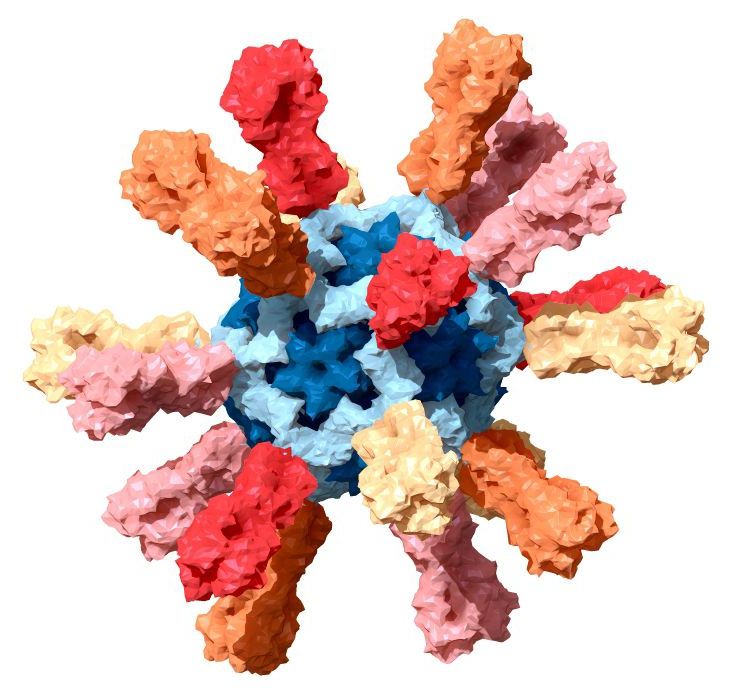A first-in-human, Phase 1 trial assessing the safety and immunogenicity of an investigational nanoparticle influenza vaccine designed to provide long-lasting protection against multiple flu virus strains has begun at the National Institutes of Health Clinical Center in Bethesda, Maryland. Healthy participants 18 to 50 years old will receive either a licensed seasonal influenza vaccine or the experimental vaccine, FluMos-v1. Scientists from NIH’s National Institute of Allergy and Infectious Diseases (NIAID) developed FluMos-v1 to stimulate antibodies against multiple influenza virus strains by displaying part of the influenza virus hemagglutinin (HA) protein on self-assembling nanoparticle scaffolds. Alicia T. Widge, M.D., of NIAID’s Vaccine Research Center (VRC), is the principal investigator of the NIAID-sponsored single-site trial.
“The health and economic burdens of influenza are substantial, and the world badly needs improved flu vaccines,” said NIAID Director Anthony S. Fauci, M.D. “I am encouraged by the great promise of the VRC nanoparticle vaccine candidate, which so far has performed very well in pre-clinical testing.”
Standard influenza vaccines must be reformulated and administered annually to match changes in the HA protein in the viral strains predicted to dominate in the upcoming influenza season. If the vaccine is not well matched to dominant circulating virus strains, the antibodies elicited may provide sub-optimal protection. So-called universal influenza vaccines are being developed and tested by many research groups and could one day eliminate the need for annual vaccination by generating long-lasting antibodies to protect against many existing or emergent influenza virus strains, including those not represented in the vaccine.
